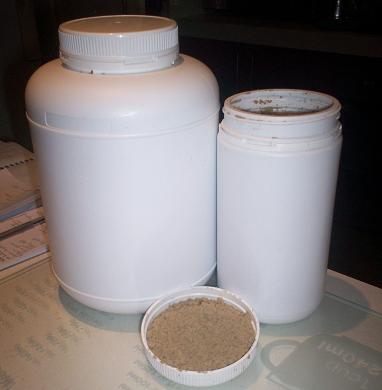 A good example of how athletes subject to drug testing need to be very attentive to everything they ingest or apply to their body. Nutritional supplements are renowned for having traces of prohibited substances, or even intentionally including substances that may or may not appear on the label, which you may or may not think to read in detail. Remember that nutritional supplements are not tightly regulated in the US (the source of many of these products), due in large part to the lax regulation of these products in the US (thank you, Senator Hatch). Over-the-counter medicine, nutritional supplements, herbal and "natural" products, creams, salves, etc. can all trip up unwitting athletes.
A good example of how athletes subject to drug testing need to be very attentive to everything they ingest or apply to their body. Nutritional supplements are renowned for having traces of prohibited substances, or even intentionally including substances that may or may not appear on the label, which you may or may not think to read in detail. Remember that nutritional supplements are not tightly regulated in the US (the source of many of these products), due in large part to the lax regulation of these products in the US (thank you, Senator Hatch). Over-the-counter medicine, nutritional supplements, herbal and "natural" products, creams, salves, etc. can all trip up unwitting athletes. Extracts from Orlando Sentinel coverage of the Rashard Lewis incident:
Orlando Magic All-Star forward Rashard Lewis tested positive for a testosterone-producing substance, dehydroepiandrosterone, which is commonly known as DHEA, and will be suspended without pay 10 games at the beginning of the season.
[...]
Lewis, who will turn 30 on Saturday, said he took an over-the-counter supplement near the end of last season which he did not know contained the banned substance. He told the Sentinel the substance was in powder form and he mixed it into smoothies. He got it at a nutritional store, but did not specify the name of the store.
[...]
Dr. Gary Wadler, Chairman of the World Anti-Doping Agency's Prohibited List and Methods Sub-Committee, said whether or not DHEA is categorized as a steroid depends on the governing body. The NBA/NBPA Anti-Drug Agreement classifies DHEA as a steroid.
"DHEA is a compound which converts to androstenedione, Andro from the McGwire days, and that in turn converts into testosterone," Wadler said. "...It is very widely used in supplemental and complementary kind of medicines and it's in food stores."
As for DHEA's performance-enhancing capabilities, Wadler said the drug is "not very effective."
According to the Mayo Clinic, the human body naturally produces the drug and that natural production degreases after age 30. In addition to its muscle-building effects, DHEA is also used to treat adrenal insufficiency, depression and in the induction of labor.





No comments:
Post a Comment